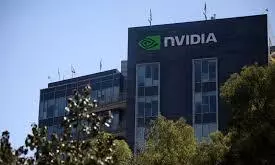
NVIDIA hits historic $4 trillion market cap, cements role as AI industry powerhouse
text_fieldsNVIDIA has made history by becoming the first publicly listed company to reach a $4 trillion market capitalisation, a feat fueled by unprecedented global demand for its artificial intelligence chips.
On July 10–11, 2025, NVIDIA briefly surged past the $4 trillion mark during intraday trading and ended the day valued at approximately $4.004 trillion - leapfrogging tech giants Microsoft and Apple.
NVIDIA’s graphics processing units (GPUs) are the backbone of leading AI models such as ChatGPT, Google Gemini, and Meta’s LLaMA, powering data centers and supercomputing platforms across the globe. Its flagship chips, including the H100 and the latest Blackwell series, continue to lead the industry in performance and adoption.
The company’s meteoric rise has been nothing short of staggering. It moved from a $1 trillion valuation in June 2023 to $2 trillion in February 2024, and then to $3 trillion by June 2024 - reaching $4 trillion just over a year later.
To put that in perspective, NVIDIA’s market value now eclipses the total worth of all publicly traded companies in the United Kingdom and surpasses the combined stock markets of Canada and Mexico. Its valuation rivals the gross domestic products of economic giants such as India and Japan.
According to Reuters, NVIDIA’s financial momentum remains strong. Its shares are already up 22% in 2025, after a dramatic 239% gain in 2024. The company posted $44.1 billion in revenue for the first quarter of fiscal year 2026 and projects around $45 billion for the second quarter. NVIDIA has now become the most influential company on the S&P 500, accounting for about 7.3% of the index.
Wedbush analyst Daniel Ives described NVIDIA as "the poster child of the AI revolution," while CFRA recently increased its stock price target, citing sustained demand for AI infrastructure.
Looking to maintain its dominance, NVIDIA is preparing to unveil its next-generation "Rubin" AI chips in 2026 to stay ahead of rivals such as AMD, Intel, and large cloud providers.
Meanwhile, regulatory agencies in the US and EU are reviewing the company’s dominance in AI hardware markets amid concerns around competition and transparency.
























